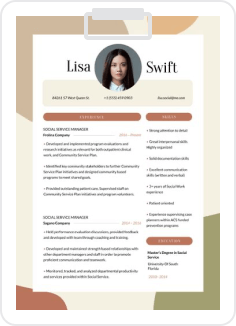How to avoid emotional burnout if you are a manager
What emotions emerge when you realize you don’t have any mental or physical energy to work? You probably feel bored, helpless, drained, distant, frustrated, or even guilty. We bet it would be even more difficult if you were a manager with a whole team behind you—a team you’re supposed to inspire and lead.
The culture of productivity and effectiveness has ugly side effects—profound emotional burnout. The state of emotional and mental exhaustion, which is provoked by prolonged stress at work, is a common problem of the XXI century. Still, we are not doomed to all have emotional burnout—this is something we can successfully avoid.
In this article, we share how to manage emotional distress, which you might experience as a manager, and how to ultimately ward off a painful burnout.
What is emotional burnout
You can hardly find a person who hasn’t experienced total exhaustion because of chronic stress at work. Some persistent stressors in team communications, such as goal-reaching or fixing mistakes and failures, can have a toll on a person’s emotional canvas.
There’s a clinical description of burnout offered by the International Classification of Diseases in its latest revision. It reads that “burnout is a syndrome conceptualized as resulting from chronic workplace stress that has not been successfully managed.”
It’s important to give proper attention to all elements of this “formula”: there should be both ongoing stresses related to work and little success in fixing them. This means that if the same situation relates to family communication or if stress is high but manageable, it will hardly lead to a “classical” burnout.
Clinical psychologists believe that burnout symptoms include energy depletion or exhaustion and increased mental distance from one’s job or negativism related to it. People who experience burnout also have a poignant feeling of ineffectiveness and don’t feel they bring much to their work.
There’s a widespread misconception that managers have lower levels of burnout since they can have more influence on the work process—and can do more to avoid stress. But, according to a new report by Future Forum (a group including Slack, Boston Consulting Group, and other companies), managers are also at high risk of burnout. Looking at various levels, researchers discovered that the risk for middle managers is at 43% and at 32% for executives. Not only managers but entrepreneurs as well report similar problems.
Another study by Capital One reveals that…
42% of small-business owners confessed they had also experienced burnout in the month before the study was conducted.
In fact, burnout is a hard thing to overcome, but it can lead to a new phase in life with a range of values re-thought. Still, it’s much better to minimize the changes of emotional breakage than deal with it and have so-called post-traumatic growth.
6 agents of stress in a manager’s work life
More than half of the people in these studies do not have burnout signs, even though they experience the same workload and face similar challenges. This means that burnout is something you may have—but also may not. So, let’s describe the factors that can pull you into the sad half. This way, you can be aware of them and not let them ruin your business or career.
1. Ignoring your weak sides
The difference between a regular office worker and a manager is the amount of demands and responsibility. But the truth is that any manager is just a person with their own weaknesses.
Trying to be the smartest, most vigorous, most productive, and most resilient player on the team won’t do you any good. The only result you might get is (yes, you got it right) emotional burnout. Being conscious about your potential, goals, and current energy level will help you invest your time and energy wisely and without extra stress.
If you are a new manager and want instant expertise in a range of topics, mind the T-shaped model of professional growth. Understanding what your pillar expertise is, figuring out what to add next, and planning your pace will help you get better results without sacrificing your health.
2. Micromanaging or doing everything on your own
The most beautiful thing about managing a team is that you have much more resources to use to deliver better results. If you have ten people in your team, it doesn’t mean you should do X10 of the work, right? Still, for some managers, more employees in their team mean more work—and more trouble.
The next time you want to review a regular report before midnight, start helping another team member do his or her responsibilities, or skip your long weekend because your team is behind on tasks, just don’t do it. It might help at the moment, but it looks more like covering a hole in a boat with your hands instead of just fixing the boat. Your top priority is making a strategic plan and supporting tactical steps—but not filling the gaps.
If your department or small business isn’t working as it should, review the processes and goals, restructure or upgrade the team, and analyze the environment. These changes will reduce stress—and thus, work will generate more energy rather than drain you of it.
➡️ How can entrepreneurs fight the anxiety of having to do everything on their own
3. Not optimizing your team’s work
It’s the manager’s task to help their team reach better results with the same amount of effort put into it. Outdated approaches and plans, and a lack of focus on real processes result in chaos—which can be throwbacks as they generate stress.
Sometimes, even minor changes can bring great results. You can delegate some tasks to various services to reduce your own or your team’s workload. Sign up for tools that help manage documentation or create a whole pack of marketing materials your business might need.
For instance, in VistaCreate, you can design original invoices for your customers in the blink of an eye. Or, you could create a whitepaper about your company so that customers can read about you and not ask sales managers for the same information each time.


Setting goals that are too ambitious while having low energy levels might be a problem (in fact, trying to be super performative is one of the emotional burnout signs). So, optimize your workflow and review the results of your work.
4. Not requesting feedback
Stress can be avoided if people put the problems on the table before they grow into something more. You might be a great visionary, but slightly short-sighted when it comes to routine—and missing something important may result in an unpleasant pile of problems. Will this be another cause of burnout? Of course, it will.
Building a culture of quick and honest feedback requires effort. When team members know their opinion is valued, managers get a broader perspective of current processes and have a faster reaction when things don’t go well. Getting structured feedback from A-suit managers also adds more meaning to what you’re doing and helps get a more structured picture of reality.
Asking for feedback means being ready to hear compliments and constructive criticism. It requires proper levels of braveness and self-control, which you can’t have without energy. Sharing honest feedback with your team and highlighting the positive (as well as less desired) feedback on their work outcomes is also crucial for burnout prevention.
Performance reviews, feedback, and expectations will reduce tension and become a good burnout antidote.
5. Forgetting to celebrate success
When you are a manager, you feel you must drive your team to extraordinary results. But such expectations devalue the amount of time, effort, and spirit you have invested into your work. Most people share that the pre-burnout phase is characterized by losing the meaning of work and having higher levels of absenteeism. Noting and highlighting small victories might add value to the process and fuel new achievements.
Celebrating success is closely connected with proper work-life balance, which is tremendously important for emotional burnout prevention. For a top manager or business owner, having quiet weekends or a two-week-long vacation sounds quite idyllic. It looks like their life is made of activities that must-be-done rather than are-nice-to-be-done, but resourceful actions are what give us the energy to perform.
Your team’s achievement is your achievement, so highlight their growth in all ways possible. Don’t be afraid to be too loud here: talk about your little victories on the brand’s social media accounts, share warm words in Slack, or even design a set of posters with statements that have supported your team in reaching a new milestone.

6. Managing people with burnout
Working with people on the verge of burnout is a challenge. Workers with burnout have lower productivity, a feeble ability to focus, and they also report 22x worse stress and anxiety at work compared to other employees. It’s hard to imagine that the whole team will have burnout simultaneously, but there are industries where the risk of it is much higher—like HoReCa, manufacturing, or healthcare.
The truth is that people with burnout need much more support, compassion, and time investment than employees without it. This will require managers to spend extra resources, including emotional ones, to manage such people. So, if you have a team in a high-risk domain, there’s a high chance you’ll have a team of workers with low energy levels. This can be a tough challenge for a manager—as it requires extra effort and causes stress itself.
What can help here is promoting awareness about burnout to your team. Transparent and honest sharing, clear requirements, and predicted workload help maintain a healthy environment.
4 rules that help reduce the chance of a manager’s burnout
Emotional burnout is a result of the accumulative effects of prolonged, unmanaged stress. Unfortunately, there’s no magic spell to remove stress—even pay raises or long vacations won’t be effective if there’s still tons of chaos, stress, and unclear goals.
The only way to avoid emotional burnout is to get your stress under control and be aware of its signs.
1. Turn fails into fuel. A manager’s mistake can undermine a whole team’s success, so the stakes are high. But people can fail, it’s part of natural growth. Give yourself and your team some time and space for this positive transformation—and don’t let stress affect it. Notice and analyze your failures, and base your new rules on them. Be flexible.
2. Maintain a focus. The clearer the picture is, the less stress there is. Try your best to not get distracted by minor things. Managers have multiple interruptions at work, but they feel much less stress if they can stay focused.
3. Delegate. Heavy workloads and high expectations can turn a manager’s life into a nightmare. So, before diving into a new wave of work, spare several hours thinking about how to delegate tasks that don’t require your everyday involvement.
4. Nurture self-compassion. For a manager, it might not be easy to give as much support to themselves as they do for other employees. But this is something you really. Remaining conscious about your current state of mind, accepting your imperfections, and seeking support before it becomes too late are your strong points, not weak ones. Being kind to yourself doesn’t mean becoming a worse leader. It just means being aware of your current potential and managing it in the best way possible.
In most cases, burnout leads to job quitting, money loss, career transformations, and sometimes antidepressants. No one can give you exceptionally effective advice on how to quickly recover from emotional burnout—usually, it takes months. But there’s an excellent way of avoiding emotional burnout: managing work stress before it ruins your life.




















